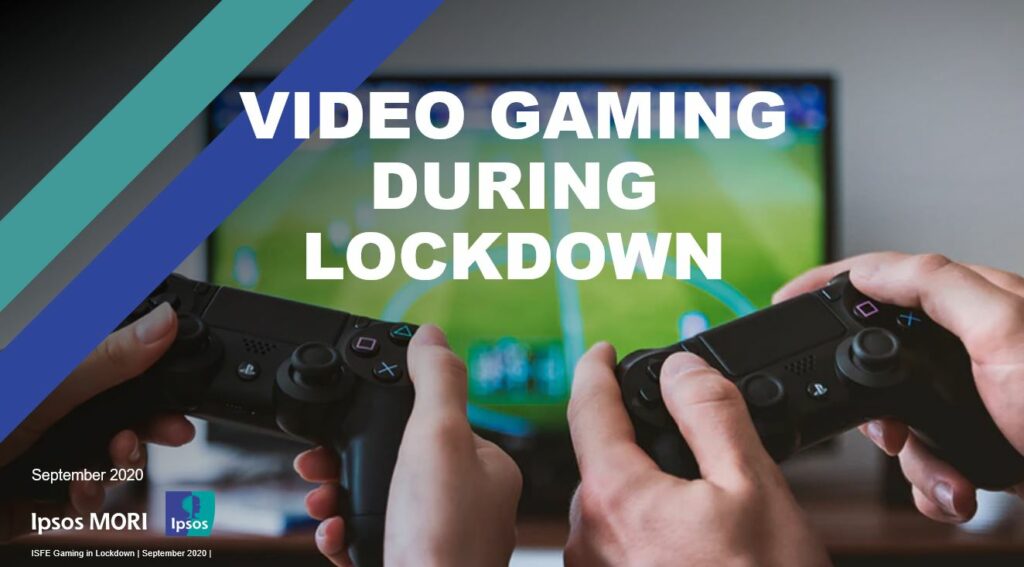[Video Games Europe PERSPECTIVE] Beyond COVID-19: Lessons from an unprecedented global challenge
The Covid-19 pandemic has presented unprecedented challenges for every industry, and video games is no exception. As one of the fastest growing creative sectors in Europe, with 55% growth since 2014, our immediate future will be critical to Europe's economic recovery. It is time to look at where we are now, what we have learned, how we apply those lessons, and what we need from Europe's regulators.
Understanding our sector: perception vs. reality
We have seen a massive increase in engagement during lockdown as video games became an invaluable way to safely connect while staying apart. Our industry was well placed to weather the pandemic initially, but that doesn't tell the whole story.
What about companies that hadn't launched before COVID? Startups seeking to establish themselves? New games still in development and now delayed? Developers denied the opportunity to pitch for deals and investment? And what about esports and live events? The Fortnite World Cup, ESL One events, and the League of Legends' Mid-Season Invitational are just three of the hundreds of events cancelled due to the pandemic.
Our European video games industry is multi-faceted, made up of many SMEs alongside the major publishing companies. An EGDF survey of its developer membership carried out at the end of March revealed that 20% of studios would be considering downscaling or shutting their businesses, and 40% are experiencing a delay in deals and projects as a direct result of the pandemic. The German video game association, Game, also carried out a survey, and just under two thirds of companies in the survey (62 %) indicated that their business circumstances will worsen in the short term, and an equal number expected negative or even very negative short-term effects on their business.
Looking at the player and sales figures at the start of lockdown and deciding we're healthy and do not need help would be a case of regulators turning their backs on thousands of companies and people whose livelihoods are threatened. But it would also be a case of turning their backs on the opportunity to benefit from the recovery of a sector that generates significant tax revenue in Europe.
Showing resilience and helping others
Our industry is agile, dynamic and digital-centric, which meant we were better placed to cope than many going into the crisis. The EGDF initiated the European Games BizDev Gathering (EGBG) -- supported by Video Games Europe and other great partners -- to help European game developers meet and pitch to a worldwide audience of publishers and investors. Many large video game companies have made funds available to support the developer community. Many esports and industry events have moved online. We have adapted to remote working, and we have managed updates while respecting the stress on network capacity, at a time when the whole world has been on the internet.
The industry can play a role in society during times of crisis
We are proud of our sector's response to the pandemic. We have made significant financial donations, leveraged our global reach and influence to communicate public health messaging, provided free access to educational and fitness games, donated hospital equipment and PPE, and engaged in numerous imaginative projects. We have been mindful of the potential effects of the increase in playtime, providing information for parents and players about responsible gameplay, and carried out a GameTrack survey of player behaviour during COVID-19.
This crisis has presented governments and international institutions with opportunities to collaborate with us in a way they have never done before, to acknowledge the breadth and scale of our audience reach, and to open their eyes to the positive contribution we make. We will work to nurture this dialogue and open-mindedness and hope to apply it to many of the other challenges we face as an industry.
What's next?
As an industry, we need to come together more than ever before -- supporting and mentoring our peers whenever possible, making this a defining moment for our sector. We have shown how we can adapt to a crisis, now we need to take that forward into a concrete change in the way we do things in order to recover and to reach our future potential. EGDF and Video Games Europe plan to work together on initiatives to support this objective.
Data is also important. Not just sales data or demographic data -- which is already well established through GSD and GameTrack -- but solid data that shows the actual picture of the industry. How many studios exist in Europe? How many people do they employ? Are the majority micro enterprises or SMEs? What is the skills gap in the sector? What is the diversity and gender balance across Europe?
EGDF and Video Games Europe plan to combine the power of our respective networks of national trade associations across Europe to get this data. Some trade bodies do this at national level, such as UKIE through its UK game map -- but we need a European map.
We see video games as a leading cultural medium in Europe, driving digital growth and connecting people. COVID-19 has shown how people have relied on video games to connect with others, to simply have fun and maybe even to indulge in a kind of interactive escapism. Together, as Video Games Europe and EGDF, we can truly make a difference and foster a healthy ecosystem of video game developers and companies and show politicians the extent to which video games can make a real and positive difference.
We invite regulators to embrace us
We have shown what contribution we can make, but we cannot do it alone. The video games industry has been a driver of the digital economy for the past 20 years, without the same levels of public support and help that other entertainment industries receive. The digital revolution is well and truly underway, and we need action to maintain and strengthen Europe's diverse landscape of game development: investment in the sector, SME-friendly loans, subsidies, and funding (but crucially seen in the context of investment) such as the Sustainable Innovation Fund in the UK, which launched in June to support projects affected by the coronavirus.
Any COVID-19 regulatory support needs to include Europe's network of independent SMEs, whose work feeds into the creation of video games. We need to make our case, complete the puzzle for the regulators, ensure they understand our industry and ensure that we are part of the programme of support for Europe and its member states.
This is a time of huge uncertainty, but one thing's for sure: it is also a great strategic opportunity to embrace us. In the meantime, we will continue to live up to our commitment to help society get through the pandemic in a responsible, video game-enriched, and socially-distanced way.
This post was first published on gamesindustry.bizz




